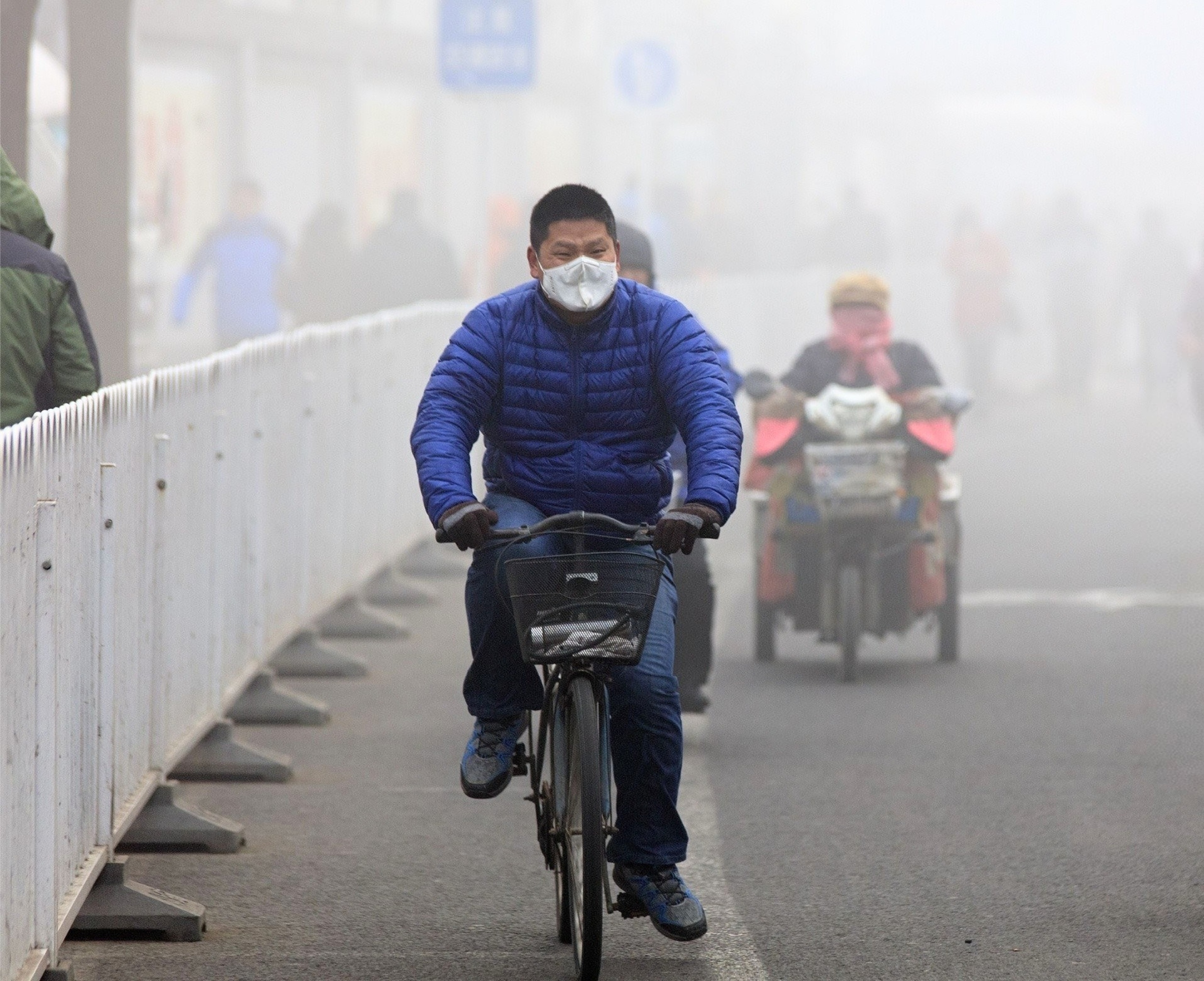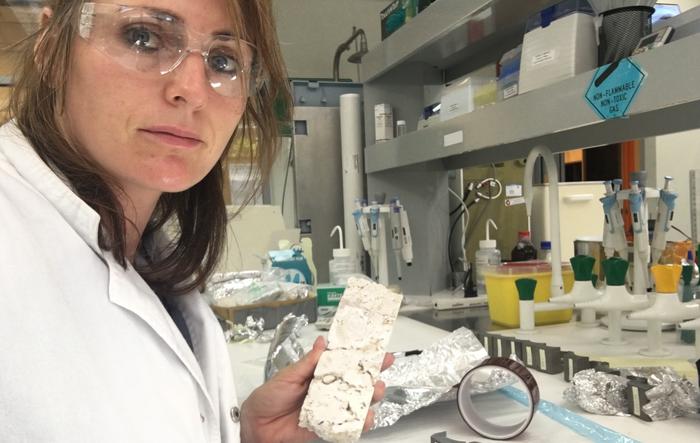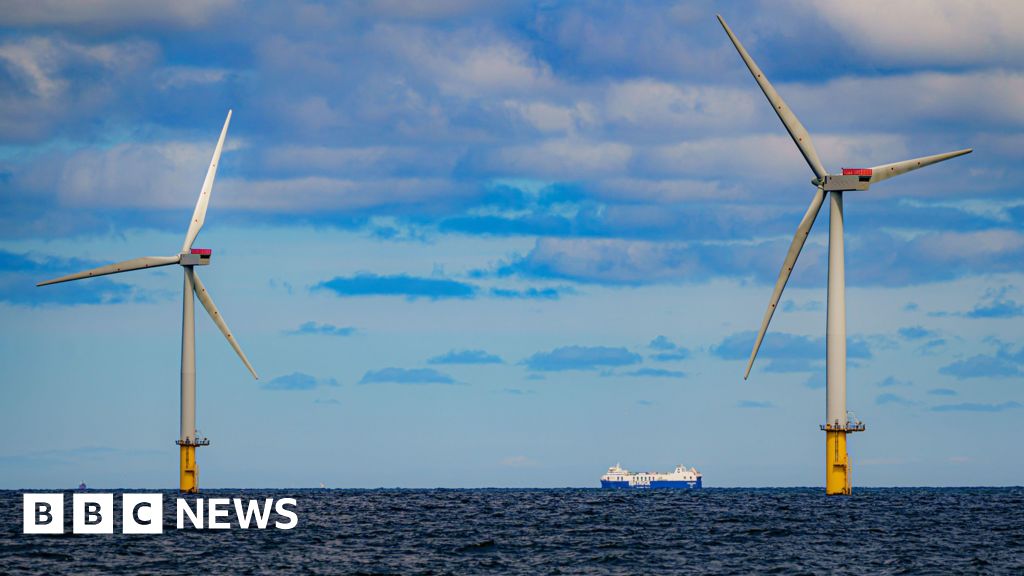Air pollution’s reach extends far beyond the lungs. Mounting evidence now ties dirty air not only to heart disease and respiratory illness but also to deeper metabolic disorders like insulin resistance and type 2 diabetes.
A new study led by…

Air pollution’s reach extends far beyond the lungs. Mounting evidence now ties dirty air not only to heart disease and respiratory illness but also to deeper metabolic disorders like insulin resistance and type 2 diabetes.
A new study led by…

After 15 years, four records and a buzz-making barrage of shows, tours and festivals, the moody, multifaceted music of north London’s Wolf Alice is huge in the U.K., thanks to uniquely seductive soundscapes, visceral live shows and a…

What can fossils teach scientists about the climate on ancient Earth? This is what a recent study published in Geochemistry, Geophysics, Geosystems hopes to address as a team of scientists investigated how…

Samsung Electronics Co., Ltd is expanding it Home Appliances Remote Management (HRM) service globally, enhancing the remote diagnostic and troubleshooting experience for smart appliances users around the world. The service is now active across 122 countries including Canada with support for 17 languages, enabling seamless support for a wide global customer base.
HRM is a service that connects SmartThings-connected appliances to Samsung’s service network, maintaining a continuous record of device conditions and enabling real-time monitoring through the service center.
“Samsung’s HRM service exemplifies our commitment to proactive, smart customer care,” said Miyoung Yoo, EVP and Head of Global Customer Satisfaction Team, Digital Appliance (DA) Business at Samsung Electronics. “Thanks to the combination of seamless connectivity and real-time insights, this service helps to reduce complexity for our customers, ultimately enhancing their overall satisfaction.”
In line with the expansion of screen-equipped appliances like Bespoke refrigerators and washing machines, Samsung has also introduced a screen-sharing feature to enhance diagnostic capabilities. For various screens of 7”, 9”, and Family Hubs, its users can share their device screens in real time with service centre advisors, allowing diagnosis of display-related issues, app malfunctions or multimedia playback problems.
Samsung’s HRM service improves a new avenue for customer care by enabling real-time remote solutions for simple product issues that previously required in-home technician visits. For instance, for a customer that reported that the washing machine’s buttons were not responding, the advisor was able to diagnose through the HRM system that the Child Lock setting was active. With simple guidance on how to disable the setting, the problem was solved instantly without a technician’s visit. In another case where a customer reported condensation on the refrigerator door, with user consent, the advisor was able to remotely turn on the internal heater, which effectively eliminated the moisture.
In cases when an on-site visit is ultimately necessary, HRM improves the experience by allowing technicians to review detailed diagnostic data in advance. They are able to arrive at the site prepared, potentially reducing repeat visits and repair times.
With the continued expansion of customer support solutions like HRM, Samsung is realizing convenient and efficient ways to care for home appliances – reducing downtime, enhancing the user experience and setting new standards for global service. As HRM reaches more countries, languages and product categories, Samsung remains committed to delivering smarter, more connected care for the homes of the future.

This article first appeared on GuruFocus.
Levi Strauss & Co. (LEVI, Financials) shares fell almost 7% in premarket trade on Friday.The denim maker said that new tariffs would affect fourth-quarter margins, even as it raised its full-year profit outlook.
The San Francisco-based garment manufacturer said that higher import costs from places like Bangladesh, Cambodia, and Pakistan, which have high tariffs under current U.S. trade policies, will cut gross margins by 130 basis points.
The estimate shows how changing U.S. trade regulations could affect global supply chains, especially for retailers who do a lot of business in places that don’t have free trade. Levi’s said it got around 70% of their holiday stock early and hiked some prices to make up for the tariff hit.
Investors were more worried about the impact on margins, even while sales were going up and younger buyers were still buying baggy and loose-fitting clothes. Barclays analysts called the outlook cautious, while Morgan Stanley said the guidance meant that the holiday quarter will be weaker since it would be harder to compare to the same quarter last year.
Levi’s stock has gone up approximately 40% this year because they have better control over their inventories and more full-price sales. Its forward price-to-earnings ratio is about 17, which is lower than Ralph Lauren’s 20.6 and higher than American Eagle Outfitters’ 11.4.
The company’s next big test will be how it deals with tariffs throughout the holiday season while keeping prices high and demand strong.

 PA Media
PA MediaA Chinese energy company has announced plans to build the UK’s largest wind turbine manufacturing facility in Scotland.
Ming Yang said the £1.5bn project would create up to 1,500 jobs, with the first production taking place by late 2028.
The firm, which is the largest private wind turbine manufacturer in China, has shortlisted the green freeport site at Ardersier as its preferred location for the facility.
Ming Yang said it would invest up to £750m in the first phase of its investment before expanding to create an “offshore wind industry ecosystem” around the hub.
It has been in talks with the Scottish and UK governments over the past two years.
The firm’s UK chief executive, Aman Wang said: “We firmly believe that by moving forward with our plans to create jobs, skills and a supply chain in the UK, we can make this country the global hub for offshore wind technology.
“We fully support the government’s mission to become a clean energy superpower, and I’m confident that once the plans are approved we can make a valued contribution to this goal.”
But a Conservative MP has previously questioned the wisdom of letting the company invest in the UK.
Last November, MP Nick Timothy asked UK energy minister Michael Shanks about Ming Yang’s plans to invest in Scotland, saying the government should rule out investment from “hostile states”.
Timothy said Ming Yang “benefits from huge subsidies in China,” adding any investment was subject to “serious questions about energy and national security”.
The UK government’s Energy Secretary, Michael Shanks, said he would “encourage investment”.
In a statement released on Friday, a UK government spokesperson said: “This is one of a number of companies that wants to invest in the UK.
“Any decisions made will be consistent with our national security.”

“The most prevalent cancer among Palestinian women is breast cancer, which poses a serious threat to public health [1]. Current epidemiology, risk factors, diagnosis, and treatment challenges, and ongoing initiatives are…

Liquid biopsy is increasingly used to monitor tumor dynamics, and circulating microRNAs (cmiRNAs) are important biomarkers because they remain stable in body fluids, reflect tissue origin, and influence cancer biology. However, their clinical…